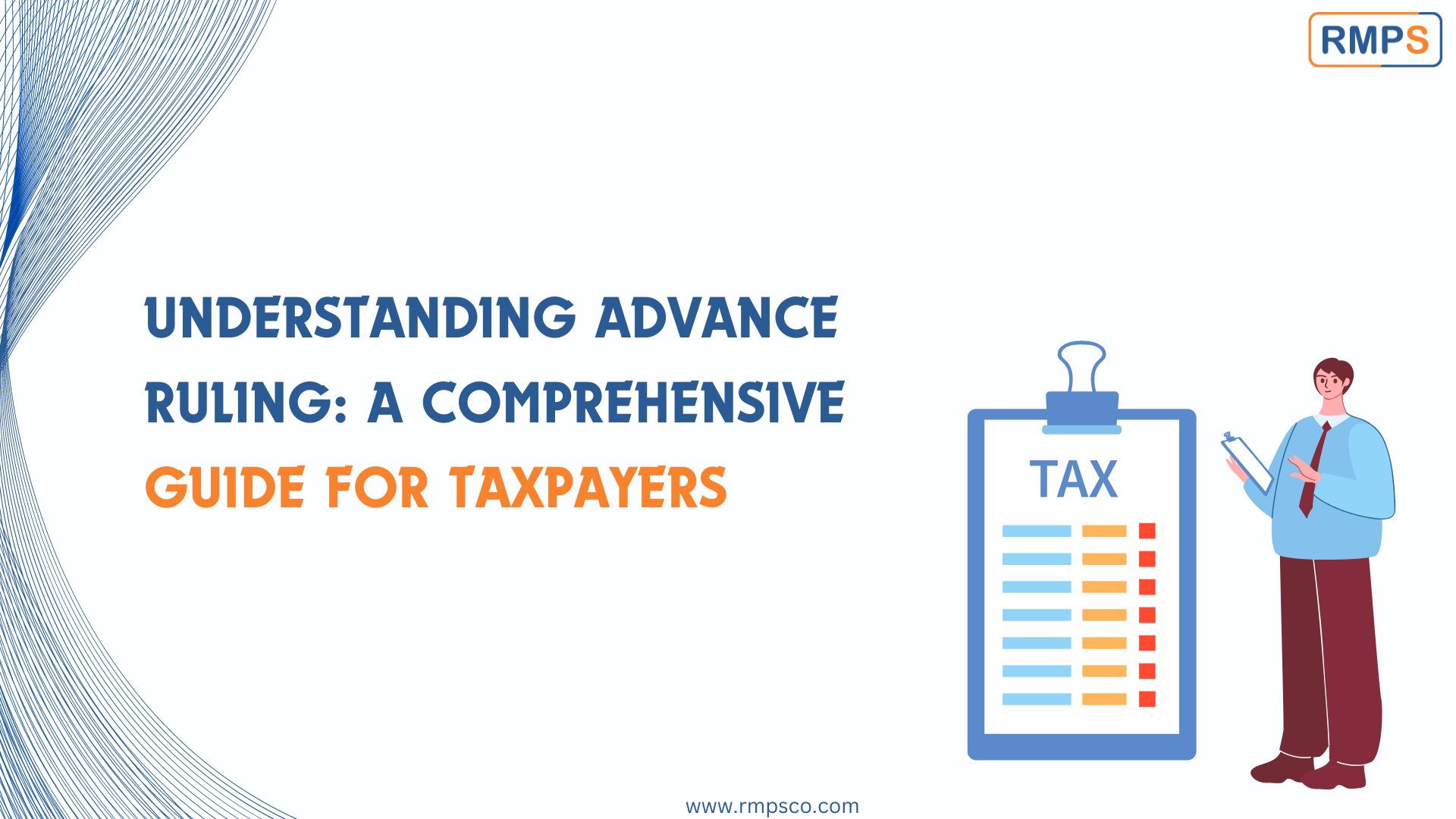
Advance Ruling is a significant aspect of the Goods and Services Tax (GST) framework that provides clarity on tax-related matters to businesses. In this blog, we will explore who can apply for Advance Ruling, the matters on which it can be sought, and the detailed process involved.
Who Can Apply for Advance Ruling?
Both registered taxpayers and unregistered persons can apply for Advance Ruling. However, unregistered users must obtain a temporary ID for this purpose.
Matters on Which Advance Ruling Can Be Filed
Advance Ruling can be sought on several matters, including:
- Classification of goods or services.
- Applicability of a GST notification.
- Determination of time and value of supply of goods or services.
- Admissibility of input tax credit.
- Liability to pay tax on goods or services.
- Requirement for registration under GST.
- Whether an activity amounts to a supply of goods or services.
Pre-conditions for Registered Taxpayers
For registered taxpayers, the pre-conditions include:
- Desire to obtain an Advance Ruling on specified matters.
- Possession of GST registration.
- Deposit of the applicable fee in the Electronic Cash Ledger.
Steps to Apply for Advance Ruling
- Log in to the GST Portal: Navigate to Services > User Services > My Applications.
- Select Application Type: Choose Advance Ruling and click on New Application.
- Deposit Fee: Ensure sufficient balance in the Cash Ledger or deposit the required amount.
- Fill the Application: Complete the application form with required details.
- Download and Update Template: Download the template for the application, update it with the necessary information, and upload it.
- Upload Supporting Documents: Upload up to four supporting documents (max size of 5 MB each).
- Verification: Enter the verification details and digitally sign the application.
- Submission: The application fee will be auto-debited, and an ARN (Application Reference Number) will be generated.
Fee Payment for Advance Ruling Application
For normal taxpayers, fees must be paid under the CGST and SGST heads, while for OIDAR taxpayers, fees are paid under the IGST head.
Nature of Business Activities
Applicants need to select the nature of their business activities when seeking Advance Ruling and can select multiple activities if required.
Tracking Application Status
Applicants can track the status of their application using the ARN via the “My Applications” menu under the “User Services” tab on the GST portal.
Types of Applications and Proceedings
The GST Portal allows filing various types of applications related to Advance Ruling:
- Seeking Advance Ruling from AAR.
- Reply to issued Notices.
- Appeal before AAAR.
- Rectification of orders.
Post-Submission Actions
After submitting an application, applicants need to participate in related proceedings and take necessary actions as intimated by AAR or AAAR. The GST Portal organizes details into six tabs: Applications, Notices, Replies, Orders, Rectification, and Additional Documents.
Conclusion
Advance Ruling provides taxpayers with clarity on tax liabilities and helps in compliance with GST regulations. Understanding the process and requirements is crucial for businesses to effectively utilize this mechanism.
LinkedIn Link : RMPS Profile
This article is only a knowledge-sharing initiative and is based on the Relevant Provisions as applicable and as per the information existing at the time of the preparation. In no event, RMPS & Co. or the Author or any other persons be liable for any direct and indirect result from this Article or any inadvertent omission of the provisions, update, etc if any.
Published on: June 29, 2024
